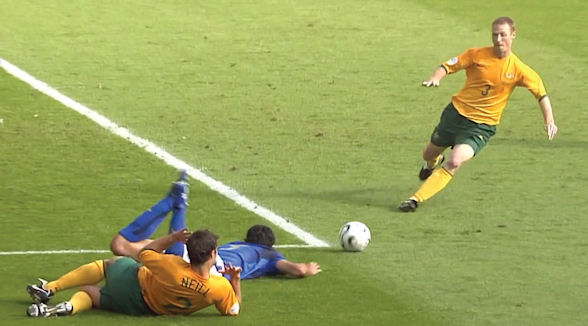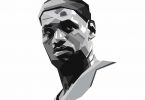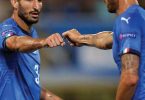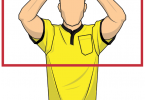This article first appeared in the May/Jun 2014 issue of World Gaming magazine.
They won’t figure in too many discussions about who will win the 2014 World Cup, but that won’t stop Japan, South Korea and Australia doing everything they can to stun the footballing elite. WGM runs the rule over our three World Cup participants as they get ready to take on the big guns in Brazil.

With Europe and South America having long dominated the round-ball game, it’s fair to say that Asia looms as the next obvious powerhouse in world football. In terms of selling the sport around the globe, the market has already been well and truly cracked with the big European leagues such as the English Premier League (EPL) and Spain’s La Liga hugely popular across Asia. In fact, a study conducted after the 2010-11 season found that the EPL attracted an in-home audience of 1.3 billion in Asia which accounted for 32.5 percent of its total viewership!
Still, football’s popularity is yet to translate into genuine success on the pitch itself, at least at World Cup level, with South Korea’s stunning if somewhat controversial run to the semi-finals in 2002 by far the greatest achievement of any of the 13 AFC members to have qualified over the years.
So what are our hopes in 2014? Not including Iran, which WGM doesn’t really consider to be an Asian nation even though it is part of the Asian Football Confederation, there are three Asian representatives headed to Brazil this year – Japan, South Korea and Australia.
Of those, Japan looks to be the side most likely to cause a stir. Blessed with raw skill and plenty of pace across the park, they are certainly no easy-beats and topped their qualifying group comfortably ahead of rivals Australia. They also happened to be the very first nation to qualify for this World Cup back in June 2013, so they’ve had a long time to prepare.
Their X-factor is Manchester United star Shinji Kagawa who has enjoyed more game time with the Red Devils since David Moyes took over this EPL season and is renowned for his calm head in the midfield.
Also worth keeping an eye on is AC Milan’s Keisuke Honda. The experienced 27-year-old is a dead ball specialist so it could spell trouble if their opponents start giving away free kicks near the box.
Japan’s biggest problem over the years has been the physical side of the game, their generally smaller frames struggling to stand their ground against the much bigger physiques found in Europe and South America. However, they received a favourable draw when they were drawn in Group C last December alongside Colombia, Greece and the Ivory Coast – having managed to avoid all of the big guns – and will consider themselves a real chance of progressing through to the Round of 16 for the third time.

Whether they can produce their best ever World Cup performance is another matter though, given they are likely to face Uruguay, England or Italy in the Round of 16 should they make it out of their group.
Asia’s second-best chance lies in the South Koreans. Progression from Group H isn’t beyond them although it won’t be easy. They face a Belgian side who many believe are the dark horses of this World Cup with their impressive array of young talent, and assuming Belgium cruise to the top of the group as expected the second spot will likely come down to the Koreans and Russia.
Like Japan, South Korea is fast and skillful with a handful of familiar faces including Cardiff City’s Kim Bo-Kyung and Sunderland’s Ki Sung-Yueng. They also boast Bayer Leverkusen’s record signing Son Heung-Min who is a lethal striker and certainly won’t hesitate to punish the opposition if given half a chance.
The problem for South Korea is their depth, with the majority of the squad plucked from the Korean national league, and even if they do progress through the group stage they will likely find themselves up against Germany, or at the very least Portugal.
Unlike Japan, Australia endured a nightmare draw this time around, with Group B pitting them against the world’s top ranked team Spain and fellow football powerhouse Holland – the two sides that contested the 2010 World Cup final – as well as a highly rated Chile side who will revel in the South American conditions they are accustomed to.
And it’s not just their opponents working against Australia’s hopes and aspirations. Their remarkable performance at the 2006 World Cup – where they progressed from Group F ahead of Croatia and Japan and could well have knocked out eventual winners Italy in the Round of 16 but for a highly dubious late penalty – came in the midst of their “Golden Generation”.

Players such as Tim Cahill, Harry Kewell, Mark Viduka, Mark Schwarzer, Lucas Neill, Brett Emerton and Mark Bresciano were at the peak of their powers back then, but most have since retired and there are question marks hanging over whether or not those of them still hanging around should still be part of the national set-up.
Given they’ve got nothing to lose, they’re probably best served employing all-out attack at this World Cup in the hope of catching their opponents off-guard, but to be blunt it will take a miracle for the Socceroos to achieve a lot in Brazil.
Still, it’s not over until the fat lady sings, as they say, so until then we’ll be waving the flag for our three Asian representatives in the hope they can do us proud.







